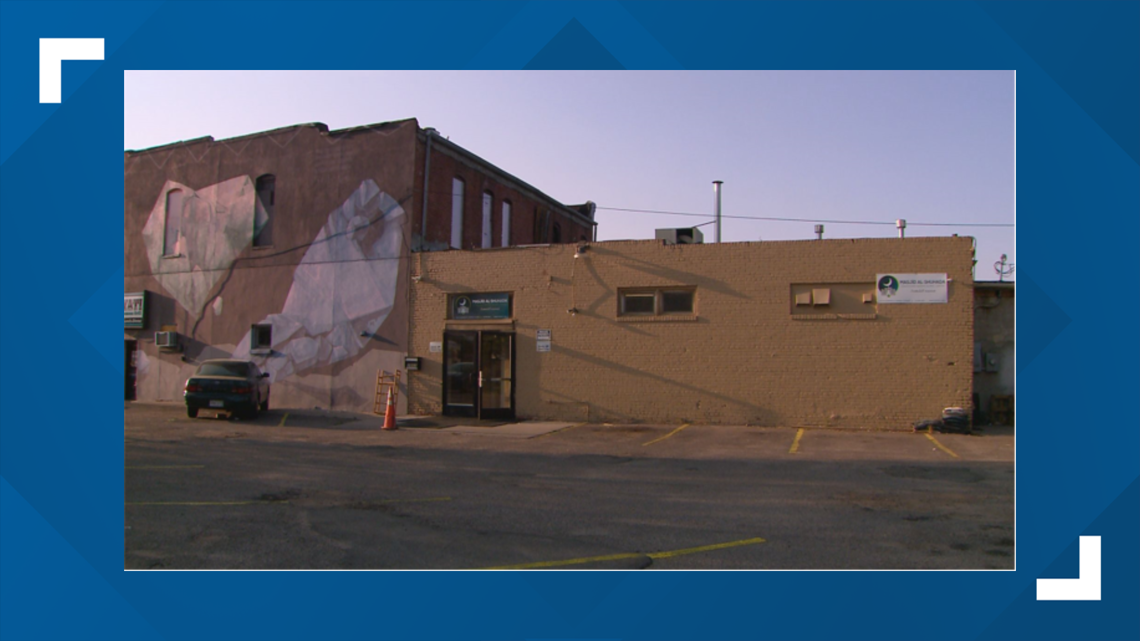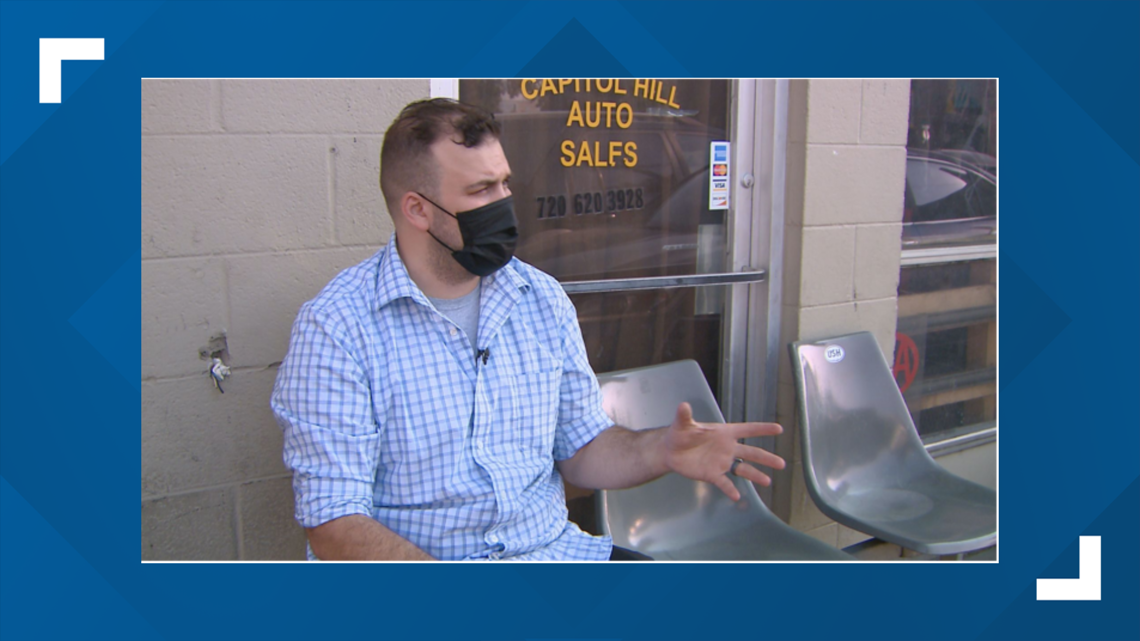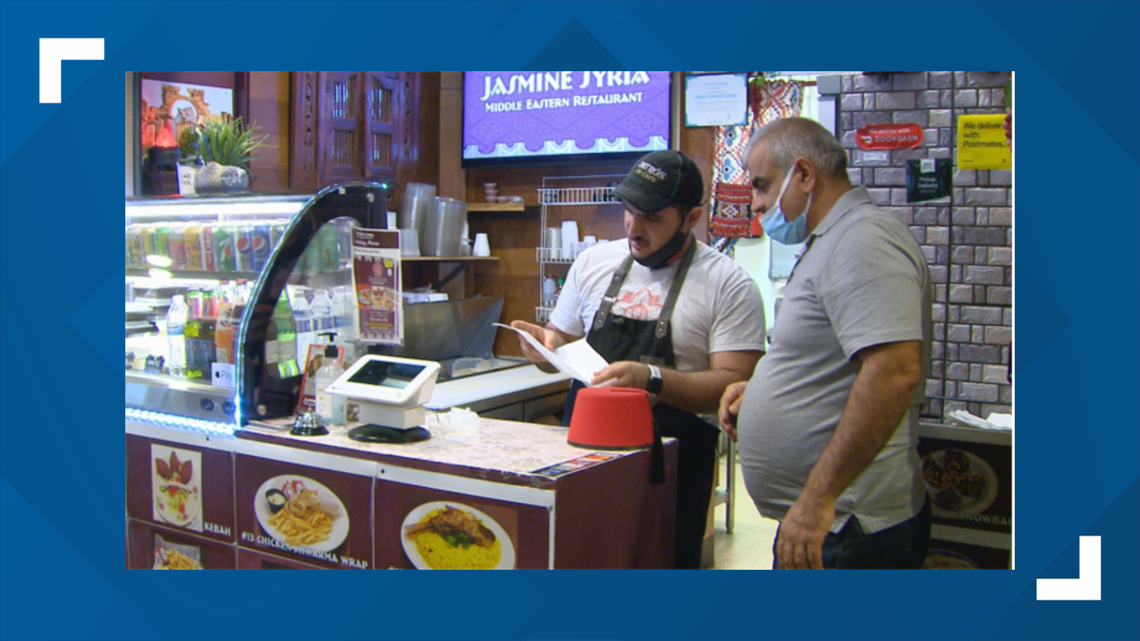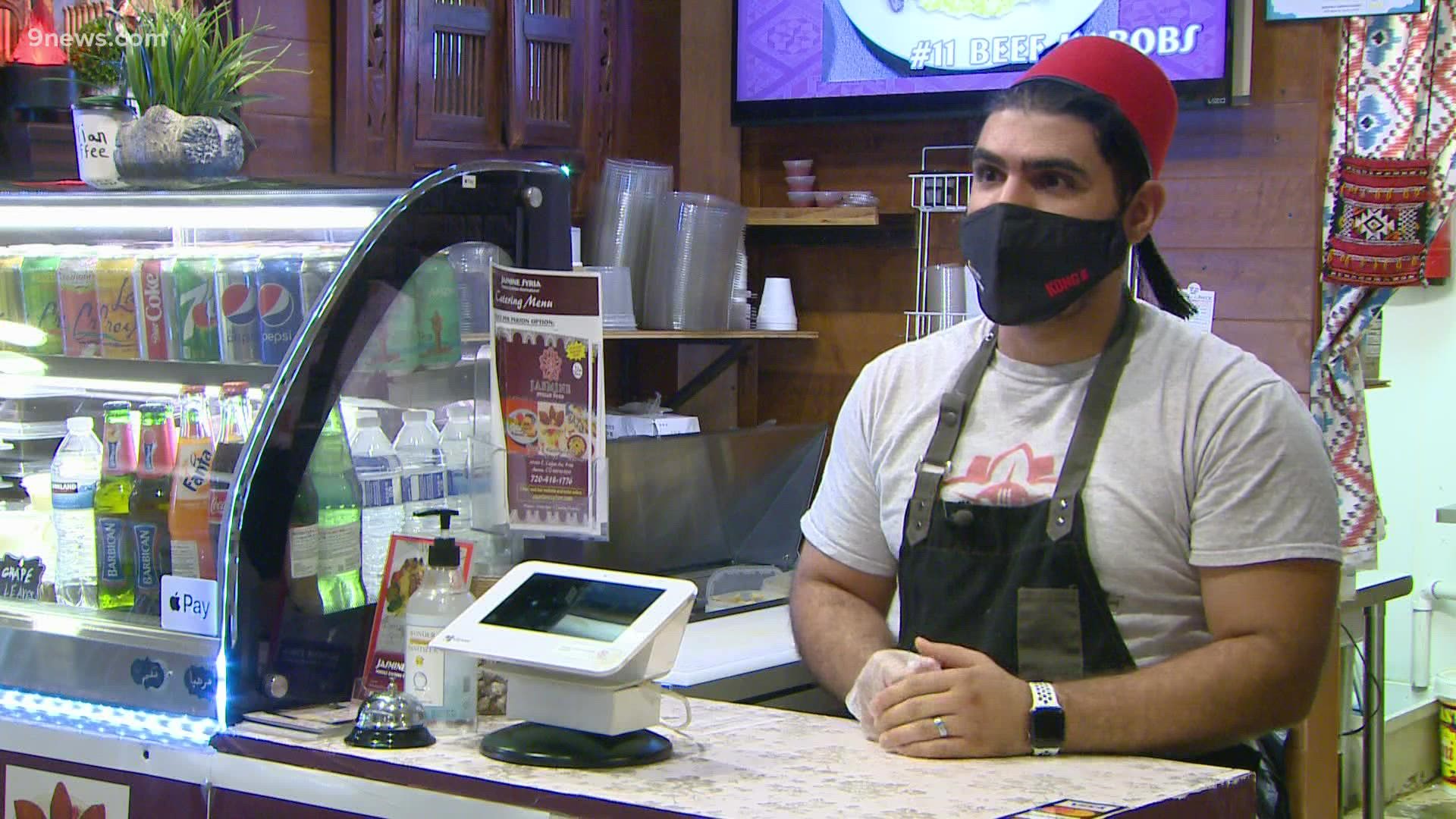DENVER — After the 9/11 attacks happened, Muslim Americans increasingly faced hate crimes, threats and harassment.
"An unprecedented amount of public attention focused on Muslim Americans in the wake of the terrorist attacks of Sept. 11, 2001," reads a recent report from the Pew Research Center.
That report adds that a March 2021 survey found in part that, "Americans were more likely say they believe Muslims face 'a lot' of discrimination."
According to History Colorado, the Muslim population in Colorado has grown to more than 70,000, and there are 14 mosques where the community can gather and worship.
Some in the community have said more education about Islam and the Muslim community is what's needed to help bridge any communication gap about who they are.


Using education to combat hate
Capitol Hill Auto has been in Rashad Kingsley Shadi's family for decades.
Shadi bought the business from his dad, who immigrated to the United States in 1977.
"We're just picking up where he left off," Shadi said. "You'll find it's a very common thing in the Muslim culture to to pick up where your parents left off."
Shadi not only runs the family-owned business but has been president of the Downtown Denver Islamic Center for the past four years.
He said he hasn't experienced discrimination much recently but that he remembers the immediate reactions after 9/11, and some of the anger that came with it.
"You had a couple of years there where people were very outspoken about Muslims in America, and they were very aggressive towards us in terms of telling us, 'Hey, go back home' or 'You guys are all terrorists,' 'You guys are all violent,' " he said.
"I can remember, you know, just standing there and people coming in the store and yelling at my mother, you know, a gas station clerk," he said. "She's just cashier running a gas station, and people getting very upset because she has a hijab on and feeling like we are the issue with 9/11."
Shadi added that those comments came with the initial wave, and he personally believes that it has slowed down over the years.
The primary issue, he said, with how the Muslim community is treated or viewed by others is education.
"If you can just educate people properly, you can solve a lot of issues that we experience in anybody's life," he said. "But the biggest issue you're going to run into is always education and stopping ignorance."
Some of the miscommunication comes from misinformation on the internet, he said. This leads to conversations he has with customers at his business on Colfax Avenue.
"I still encourage people to keep educating themselves on our beliefs," he said. "I think the biggest issue you have now is people are still 'Facebook learning' and 'Wikipedia learning' Islam. And the problem is, a lot of the stuff that you have on the Internet about Islam is not written by a Muslim person. These are non-Muslims writing articles about what we believe. These are non-Muslims telling us what the Quran says, but not actual Muslim scholars or Muslim people who are writing these documentaries."
But he added that he believes many people have educated themselves about the Muslim community over the years, especially as the community has grown.
"If there's anything I want to say to Americans for the last 20 years, it's, you know, thank you for taking the first steps and learning about our faith," Shadi said. "Now let's hopefully take the next step and keep learning about each other and find a way to be in harmony together."


Muslim presence in local politics
In 2020, Coloradans elected the state legislature's first Muslim, Iman Jodeh.
"I think, for the Muslim community, it has definitely changed, but I don't think it has been something that has defined us," she said. "And it's important to say that because allowing something like this to define our future and how we are a part of community is not helpful.
"And it's not lost upon us that, you know, there are young men and women in the military who were not even born during 9/11 and who are standing up to defend their country, including countless Muslims and Arabs who have been serving for years and years," she said. "And again, I think it's worth mentioning that Muslims and Arabs are a fabric of this society, and we are just as American as the next."
In the initial days, weeks and months after 9/11, the community could feel the anger toward Muslims and Arabs, she said.
"And there were incidences that, you know, the Muslim community that our mosques faced. There were threatening letters," she said. "At one point, there was a pig's head left on the gates of the Colorado Muslim Society. And a lot of those actions were in retaliation or fear, and honestly, just a hard way to accept and understand and educate our community about our religion and the 2 billion people who find peace in it and a way of life."
Overall, she said she's optimistic that many in surrounding communities have made an effort to educate themselves more about the Muslim community and their culture.
"This is definitely shown when non-Muslims want to come to the mosques, when we have open houses and they're full and packed," she said. "And again, I think it's proof that people want to come into our community and learn and literally see what goes on in a mosque.
"... I would also say the importance of coming together and building allies and solidarity within our community is equally as important, and that comes with reaching out and being a part of the community, of being a part of our neighbors and making sure we have those relationships," she said.


Starting a new life
The owner of Jasmine Syrian Food, Mohamad, said he and his family have not experienced much bias since coming to the United States in 2017.
His family fled their home country of Syria for Egypt, and they then moved to Colorado to start a new life.
On the back of their menus, they tell their family's story.
"When we arrived, none of us spoke English," the menu reads. "We knew we'd need to start all over again, and find a new dream to live. Jasmine is that dream. We invite you to savor the foods and delicacies we love, made with authentic ingredients and ancient recipes."
Mohamad said he hopes people keep an open mind.
“We love to share our food with everyone," he said. "Don’t be afraid, you know, don’t be afraid with any type of people. We are all human. There is no difference. The difference is the language and some culture stuff, but don’t be afraid."
SUGGESTED VIDEOS: 9/11 20th anniversary

